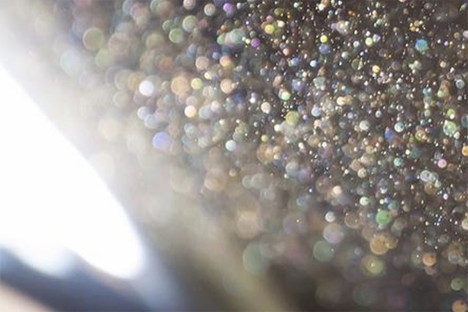
In any home renovation project, the air you breathe becomes filled with dust. Much of the dust comes in tiny particles of plaster, sawdust, fiberglass or mold spores. Many of these particles are not only toxic, but they are small enough to penetrate deep into the lungs and enter the bloodstream, causing serious health problems.
The air can also be filled with toxic, volatile organic compounds (VOCs) from paints, solvents, glues and cleaning products. Many of these VOC fumes are carcinogenic.
Depending on the age and condition of the home, there could also be asbestos in insulation, toxic mold hidden in walls or lead in old paint. If you suspect any of these issues, you should get an inspection from a qualified professional before renovations start.
Since gaseous pollutants like paint fumes and VOCs are likely to be present, you should select a Blueair SmokeStop™ filter to not only remove paint smell but prevent paint fume poisoning and reduce health risk. For even more protection against gaseous pollutants, use a Blueair Carbon+ Filter as an add-on filter with either the Blueair Pro Particle Filter or Blueair SmokeStop™ Filter.
All of these pollutants are especially hard on children, the elderly, asthmatics and people whose immune systems are compromised.
Once renovations get under way, it is important to protect yourself and your family. But how to get rid of construction dust in the air? Here are a few tips to remove dust from the air, as well as paint fumes in the air.
- Keep the area where renovations are going on well contained. Plastic barriers and zipper systems are available for this purpose.
- Vacuum frequently with a vacuum cleaner equipped with a HEPA filter.
- Cover air vents in the area being renovated to keep dust and fumes from spreading through the house via the HVAC system.
- Depending on the season and the level of pollen and air pollution outside, consider keeping windows open in the area being renovated.
- Use VOC-free, odor-free paints. That’s the easiest way to avoid breathing cancer-causing paint fumes and prevent paint-fume poisoning.
- Replace your HVAC filter with the highest quality one you can find and check it frequently.
- Consider cleaning the ducts in your HVAC system to remove any particles that may have settled there.
- Test the air when the project is completed.
Air purifiers can also make a big improvement to air quality during construction. Because of the heavy load from all the dust and fumes, Blueair Pro air purifiers are a good option. These air purifiers offer powerful air purification performance in a small space. All Pro models are solidly built, with a galvanized steel housing, and backed by an extended warranty.
Blueair Pro models are available with the Blueair Air Intelligence Module (standard on the Pro XL model). This module allows you to set your Pro unit to automatically test particle and gas levels in your indoor air and adjust the fan speed based on the air quality. The results are displayed on informative, easy-to-read indicators so you can be sure that your renovations are not compromising your air quality.
Synergistic HEPASilent™ technology combines two air purification technologies – electrostatic and mechanical filtration – to bring you the best of both worlds. With HEPASilent™ technology, our Pro air purifiers combine the highest Clean Air Delivery Rate (CADR) with whisper-silent operation. In fact, Pro works so quietly that you might have to check to make sure it’s switched on. It uses less electricity than a light bulb.
Ideally, one air purifier should be within the renovation containment zone, with additional air purifiers in the bedrooms, since those are the rooms where you and your family spend the most time. Blueair Pro’s filters fit all three models, a big advantage when you need different sized air purifiers for different rooms. The advanced, v-shaped filters are also foldable for easy storage and clean handling.
Blueair air purifiers are simple to use and have something special: We are the only major air purifier brand to verify 100% of our models for performance for Clean Air Delivery Rate (CADR).


